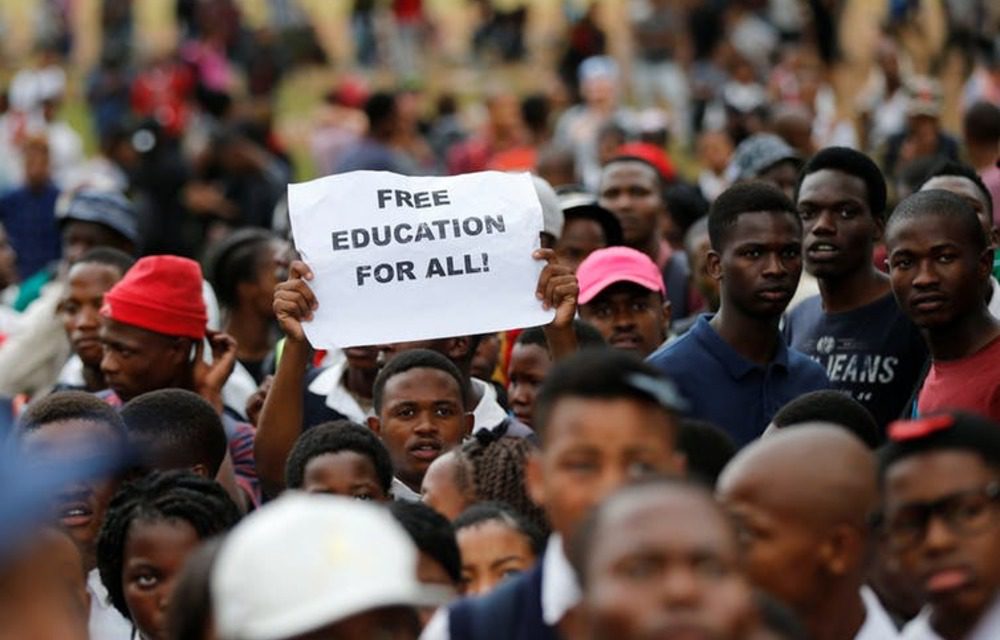
Visits: 1
Looking for ways to get free education in South Africa? This article explores various options available, including government-sponsored programs, scholarships and bursaries, and alternative options. With the importance of education in South Africa, it is very important to know your options for accessing education without breaking the bank. Read on to discover how you can pursue your educational goals without financial barriers.
The Importance of Education in South Africa
Education is a fundamental human right that should be accessible to all individuals, regardless of their background or financial status. In South Africa, education plays a crucial role in shaping the future of the country and its citizens. It not only provides individuals with the necessary skills and knowledge to succeed in life but also contributes to the growth and development of the economy.
However, access to quality education has been a challenge for many South Africans, especially those from disadvantaged communities. The high cost of tuition fees and other related expenses have made it difficult for many to pursue their academic dreams. This has resulted in a significant gap in educational attainment between different socio-economic groups in the country.
Despite these challenges, there are various avenues available for individuals to access free education in South Africa. These include government-sponsored programs, scholarships and bursaries, and alternative options such as online learning platforms. By exploring these different avenues, more individuals can unlock opportunities and achieve their educational goals.
Government-Sponsored Programs for Free Education
In South Africa, the government has recognized the importance of education and has implemented various programs to provide free education to its citizens. One such program is the National Student Financial Aid Scheme (NSFAS), which provides financial assistance to students from poor and working-class families. The NSFAS covers tuition fees, accommodation, and other study-related expenses.
Another government-sponsored program is the Funza Lushaka Bursary Program, which aims to increase the number of qualified teachers in the country. This program provides full-cost bursaries to eligible students who are studying towards a teaching qualification. In return, the students are required to teach at a public school for the same number of years that they received the bursary.
The Department of Higher Education and Training also offers the TVET College Bursary Scheme, which provides financial assistance to students who are enrolled in Technical and Vocational Education and Training (TVET) colleges. The bursary covers tuition fees, accommodation, transport, and other study-related expenses.
Lastly, the Ikusasa Student Financial Aid Programme (ISFAP) is a government initiative that provides financial assistance to students who come from households with an annual income of less than R600,000. The program covers tuition fees, accommodation, and other study-related expenses.
Overall, these government-sponsored programs aim to make education accessible to all South Africans, regardless of their financial background.
Scholarships and Bursaries for Free Education
Scholarships and bursaries are another option for students who want to pursue higher education without worrying about the financial burden. These programs are offered by various organizations, both public and private, to help deserving students cover their tuition fees, accommodation, and other expenses.
Scholarships are usually awarded based on academic merit, while bursaries are given to students who demonstrate financial need. Some scholarships and bursaries also consider factors such as community involvement, leadership skills, and extracurricular activities.
There are many different types of scholarships and bursaries available in South Africa, ranging from those offered by universities and colleges to those provided by private companies and non-profit organizations. Some scholarships and bursaries cover the full cost of tuition, while others only cover a portion of it.
It’s important to note that scholarships and bursaries often have specific eligibility criteria, such as academic performance, field of study, or demographic background. Students should research and apply for programs that align with their qualifications and interests.
Overall, scholarships and bursaries are excellent opportunities for students who want to pursue higher education but may not have the financial means to do so. By taking advantage of these programs, students can unlock new avenues for learning and career advancement.
Alternative Options for Free Education in South Africa
Apart from government-sponsored programs and scholarships, there are alternative options for free education in South Africa. One such option is online learning platforms that offer free courses. These platforms provide access to a wide range of courses from top universities around the world. Some popular online learning platforms include Coursera, edX, and FutureLearn.
Another option is community-based organizations that offer free educational programs. These organizations are often run by volunteers who are passionate about providing education to disadvantaged communities. They offer a variety of programs, including literacy classes, computer skills training, and vocational training.
Additionally, some companies offer employee development programs that provide free education and training to their employees. These programs are designed to improve the skills and knowledge of employees, which can lead to career advancement opportunities.
Finally, libraries are also an excellent resource for free education. Libraries offer a wealth of information and resources, including books, magazines, and online databases. Many libraries also offer free workshops and classes on various topics, such as computer skills, writing, and language learning.
Conclusion
In conclusion, there are several alternative options for free education in South Africa. Online learning platforms, community-based organizations, employee development programs, and libraries are all great resources for those seeking to improve their knowledge and skills without breaking the bank.


%20(1).png)


